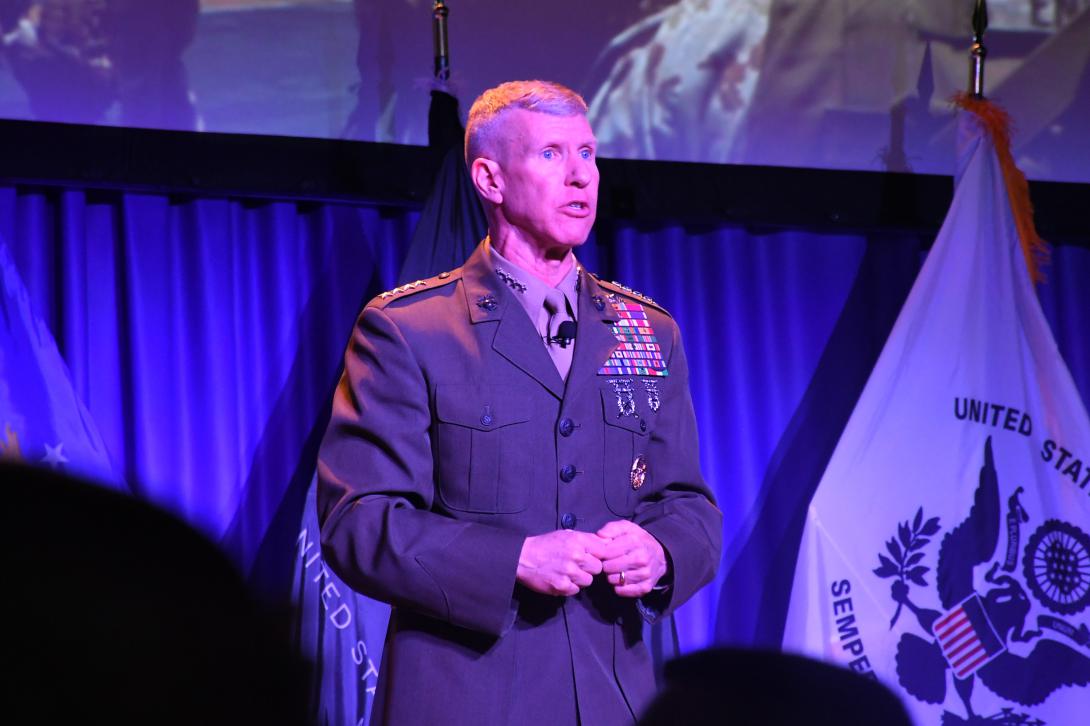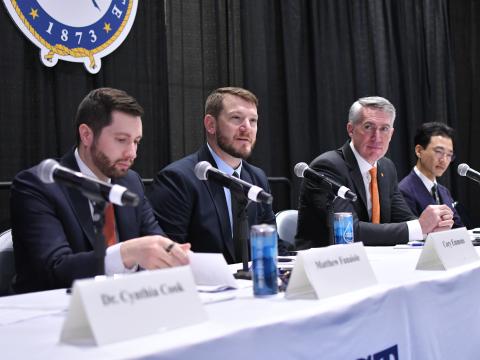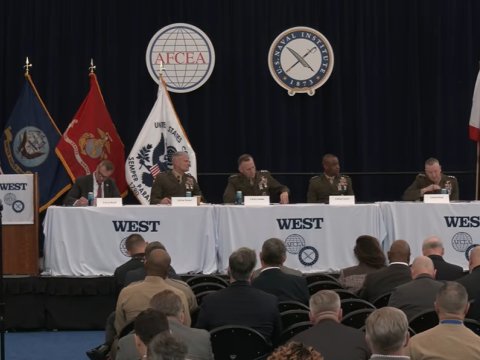Marines Bet on Retention to Close Recruitment Gap
The Marines must concentrate on being the force that arrives first and stays light and fast, explained Gen. Eric Smith, assistant commandant of the U.S. Marine Corps.
This force should give the country an advantage in speed and defend interests before competitors are allowed to set the scene and conditions.
To achieve this, Gen. Smith emphasized the need for updates in equipment and, crucially, personnel in quantity and quality.
Recruitment has proven to be a challenge for most services and the general maintained that compensation policy would stay in place, without bonuses for recruits.
“The reason that we don’t get bonuses is because you get to call yourself a Marine, that’s your bonus,” he said.
While training fewer Marines may be a risk to the operations of the force, the general explained that many jobs would be moved down the command chain with increased training.
And this starts from the beginning with an extension from eight to 14 weeks of basic infantry training, in teams that will stay together through this time and onto their first assignment.
Still, after initial induction, later in their career comes the greatest retention challenge.
“We have a gap between five and nine years where we have a hard time holding people,” Gen. Smith told the audience at WEST Conference in San Diego.
To address this, longer postings and increased career opportunities are part of the new policies. The general explained that retention is the key to solving personnel shortages, with quality Marines that stay longer in the force.
The reason that we don’t get bonuses is because you get to call yourself a Marine, that’s your bonus.
Together with changes in personnel, the force is moving away from tanks and artillery.
With shells covering around 10 miles and HIMARS rockets covering distances around 10 times that distance, the general stressed that a towed piece is also too slow for future conflict. Along those lines, tanks also took a toll on mobility and resources that would hamper the ability of the force to deploy with speed as an advantage.
For these reasons, the assistant commandant explained those two weapons systems would be phased out in this service.
“It is growing ranges of missile systems, growing the number of ships and growing the number of amphibs (amphibious combat vehicles) by multiples per year,” Gen. Smith told the audience.
“We have a gap between five and nine years where we have a hard time holding people,” Gen. Smith explained, and expanded on personnel retention. The service will not recruit its way out of recruiting shortages, it will retain to tackle it.#WEST2023
— Diego Laje, MJ (@dlaje) February 14, 2023




Comments